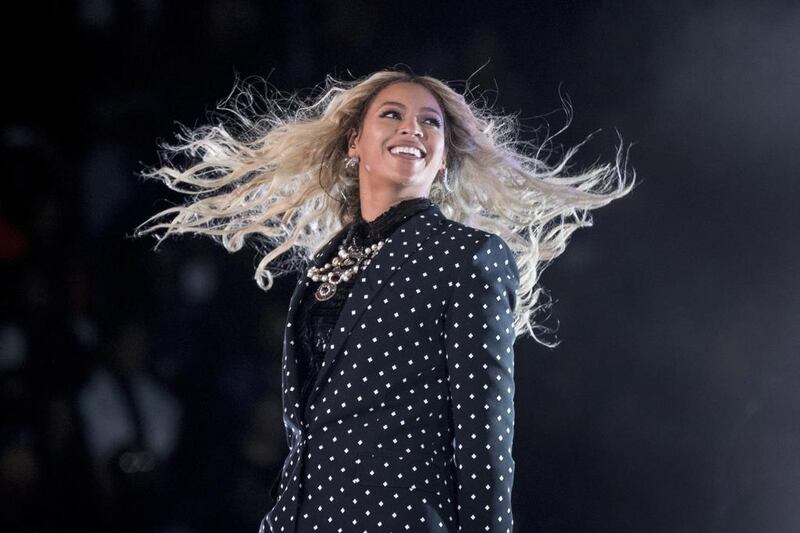The biggest box office stars don’t always hail from the US, they come from other places, too.
The best way to understand anything in Hollywood, a wise old producer once told me, is to check the numbers first.
So, here are some numbers: Beyoncé, the internationally famous and quite possibly most talked-about woman in the world, has about 14.7 million Twitter followers. She’s ranked at, roughly, the 119th most popular person on Twitter.
Shakira, the Colombian-born pop star, has a whopping 45.2 million Twitter followers. She’s about 18th on the Twitter popularity scale.
For reference, Donald Trump, the American-born star of reality television, hotel and resort real estate transactions, and other assorted career accomplishments, has about 31 million Twitters followers and ranks at about 34th on the popularity scale.
In other words, you’d have to add Beyoncé’s Twitter following to Donald Trump’s Twitter following to edge out Shakira. This may or may not be significant, but it’s a useful measure of the lopsided attention American entertainment businesses pay to American celebrities. Beyoncé garners endless column inches of newsprint and paparazzi enthusiasm. Shakira, in the United States anyway, not so much. (Donald Trump is another matter.) At an investors’ conference years ago, I appeared on a panel entitled “The Soft Power of Hollywood”. It may have been called something else equally futile – at a certain point, my memory gets fuzzy – but what I remember more clearly than the blandly meaningless title was the moment when a fellow panellist, an American media executive, breathlessly reminded the audience that American movie stars were the “most popular” and “most famous” people on Earth.
Which isn’t quite true, as I reminded him. The most famous and most popular movie stars on Earth – if you’re going by the sheer number of human beings who watch their films – are indisputably Indian. It’s Bollywood, not Hollywood, that really packs in the audiences. Cinemas and DVD players across the globe flicker with images of Shah Rukh Khan, Amitabh Bachchan, Deepika Padukone and the rest of the Bollywood constellation of box office champions. This is not to say that American movie stars aren’t popular or famous -- just that the near-monopoly in the manufacture and marketing of famous stars that Hollywood has enjoyed for almost a century is no longer in effect.
The Hollywood executive on the panel smiled thinly when I said this. “That’s a good reminder, thanks,” he said in a tone that conveyed zero thanks. In retrospect, it might have been a smarter career move to have delivered this “good reminder” in private. But my feeling is, if you’re on a stupid-sounding panel at a pointless conference, the least you can do is deliver some drama.
Smart celebrities with a strategic grasp of international entertainment markets don’t need to be reminded of the new ways of Hollywood. Almost 10 years ago, Beyoncé (it always comes down to Beyoncé, have you noticed?) released a duet with Shakira – a blend of Latin, American and even Arabic musical styles. The song, Beautiful Liar, went on to become a smash hit for both singers. But more importantly, it was a crossover opportunity for Beyoncé, and allowed her to reach a worldwide audience. Beautiful Liar is a first-rate pop song (if your taste runs to that sort of thing) but it’s more remarkable as a shrewd and far-seeing business move. As old Hollywood producers say, when you want to know what’s happening in Hollywood, check the numbers first.
A week or so ago, Justin Bieber, perhaps the most annoying (but hugely talented) Canadian who ever lived, released his own Beautiful Liar-style gambit. His song, Despacito, is a clear attempt to break into the Latin American and Spanish-language market. It’s a remix of a Daddy Yankee and Luis Fonsi song, and I won’t pretend I know who those two people are if you promise not to pretend that you do, either. The salient point here is that by remixing a popular Latin American song, Justin Bieber has broadened his audience base and reminded American entertainment executives that there’s a big, wide world out there. His reminder, it must be admitted, is a lot more bouncy and danceable than mine was, all those years ago at a conference. But the message is the same.
Unfortunately for Bieber, he went a step past Beyoncé and actually sang the song in Spanish, which is a language he is not proficient in. We know that because a few days ago, at a concert in New York he forgot the lyrics – which, mostly, involve his singing only the word “despacito”. And this isn’t the first time. In April, he sang the song in front of a Spanish-speaking audience in Puerto Rico and again forgot the lyrics, replacing them with a combination of “blah blah blah”, “I ate the burrito”, and “I don’t know the words so I say Dorito”.
There are better ways to charm a Spanish-speaking audience. There are better ways – Beyoncé ways – to reach across borders and amass a larger audience. At some point, even Hollywood executives won’t need to be reminded that movie stars and pop stars and hit songs come in many nationalities and many languages. As always, check the numbers first.
Rob Long is a writer and producer in Los Angeles
On Twitter: @rcbl





